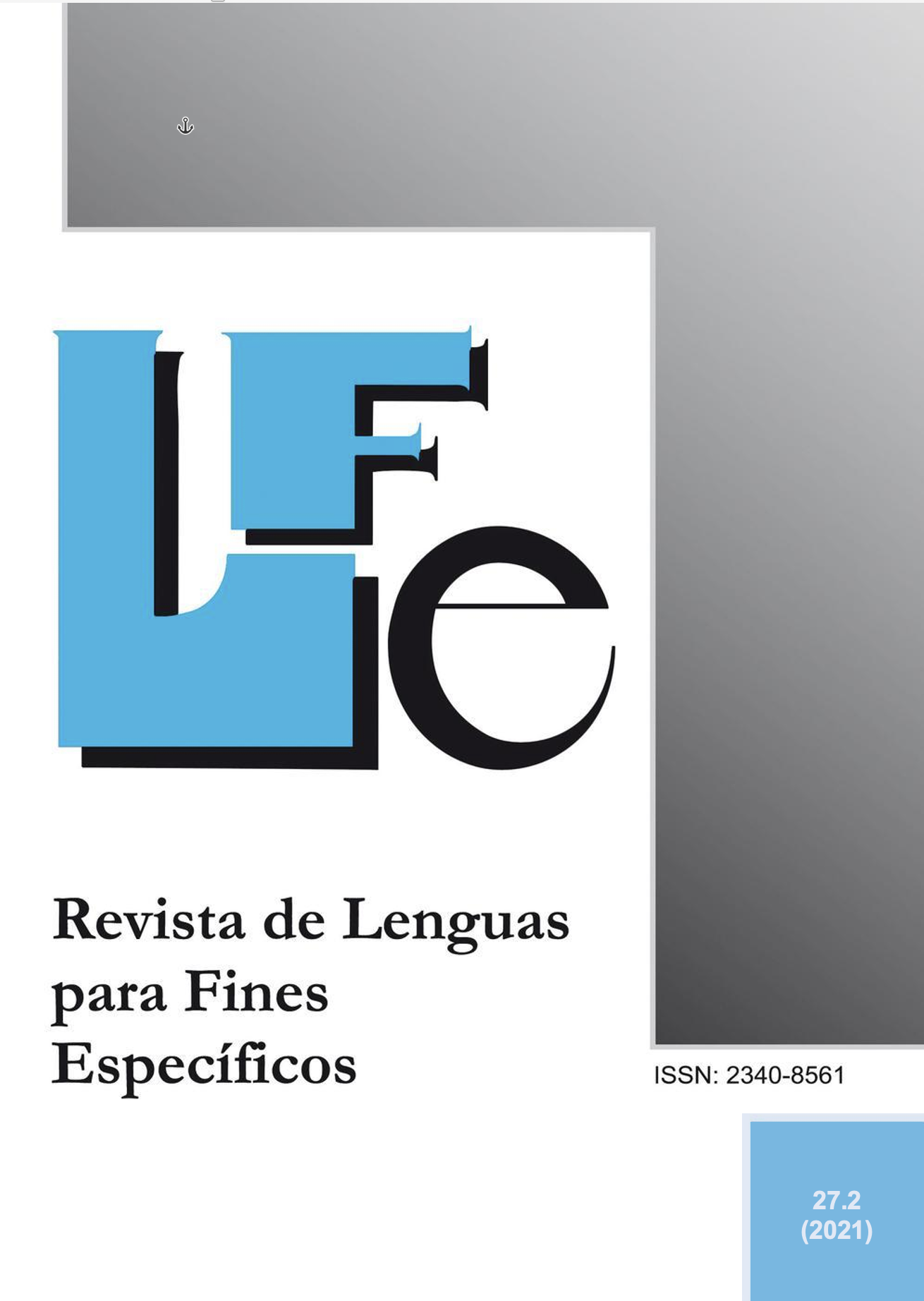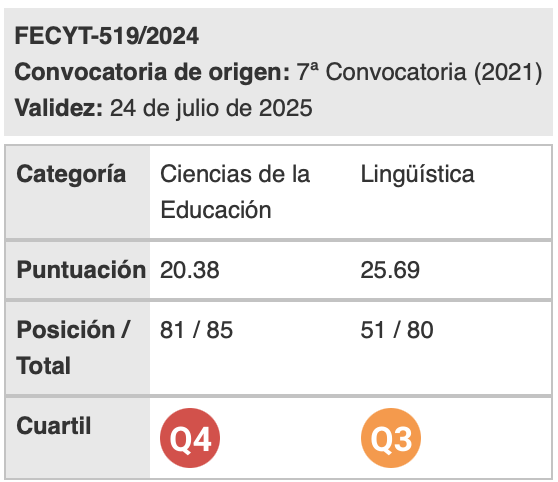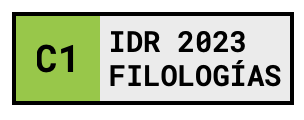Intercultural elements in the short story Donnie, by the German speaking author Sherko Fatah
Keywords:
literature studies, German language, German studies, comparative studies, intercultural German studiesAbstract
This contribution analyses the first literary text of the author Sherko Fatah (b.1964), focusing on the presence of intercultural elements, the dialogical relation between the cultural memories and the languages that appear in the text as a possible key to his literary model. The article also describes and explains the main intercultural items that form the pillars of his project, as well as the role these items play based on the theoretical proposal of Carmine Chiellino, an expert in intercultural literary studies in Germany, and Jan and Aleida Assmann’s concept of cultural memory.
Downloads
References
Ahmad, I. (1973). Mal du peuple. I. Darwish (trad.). Paris: L’Harmattan.
Albadalejo, T. (2011). Sobre la literatura ectópica. In Bieniec, A., Lengl, S., Okou, S., Shchyhlevska, N. (eds.), Rem tene, verba sequentur! Gelebte Interkulturalität. Festschrift zum 65. Geburtstag des Wissenschaftlers und Dichters Carmine/Gino Chiellino. Dresden: Thelem. 141-153.
Albadalejo, T. (2016). Cultural Rhetoric. Foundations and perspectives. Res Rhetorica 1. 16-29. https://doi.org/10.17380/rr2016.1.2
Allison, C. (2001). The Yezidi oral tradition in Iraqi Kurdistan. Richmond (Surrey, England): Curzon Press.
Assmann, A. (2003). Erinnerungsräume. Formen und Wandlungen des kulturellen Gedächtnisses. München: C.H.Beck.
Assmann, J. (2007). Das kulturelle Gedächtnis. Schrift, Erinnerung und politische Identität in frühen Hochkulturen. München: C. H. Beck.
Chiellino, C. (2015). Das große ABC für interkulturelle Leser. Bern: Peter Lang.
Chiellino, C. (2001). Liebe und Interkulturalität.Tübingen: Stauffenburg Verlag.
Falcón, M. (2015). Aspectos interculturales en la obra del autor alemán de origen kurdo-iraquí Sherko Fatah. Tesis doctoral inédita dirigida por las Dras. Ana Pérez López y Ana Ruiz Sánchez, defendida el 24.03. en la Facultad de Filología Alemana de la UCM.< https://eprints.ucm.es/30848/>.
Fatah, S. (2001). Im Grenzland. Salzburg: Jung und Jung.
Fatah, S. (2002). Donnie. Salzburg: Jung und Jung.
Fatah, S. (2003). Tierra de frontera. María Falcón Quintana (trad.). Madrid: Siruela.
Fatah, S. (2004). Onkelchen. Salzburg: Jung und Jung.
Fatah, S. (2008). Das dunkle Schiff. Salzburg: Jung und Jung.
Fatah, S. (2011). Ein weißes Land. München: Random House.
Fatah, S. (2016). Der letzte Ort. München: Random House.
Fatah, S. (2019). Schwarzer September. München: Random House.
Gnisci, A. et al. (2002). Introducción a la literatura comparada. L. Giulani (trad.). Barcelona: Mondadori.
Ruiz Sánchez, A. (2014). Die Kodierung des latenten Gedächtnisses im Roman Federico Sánchez vous salue bien von Jorge Semprún. In Grugger, H. & Lengl, S. (eds.). Fragen an die interkulturelle Literatur. (pp. 91-110). Würzburg: Verlag Königshausen & Neumann.
Ruiz-Sánchez, A. (2017). Literatura y multilingüismo: análisis de la lengua vivida (erlebte Sprache). Revista de Filología Alemana 25. 59-76. https://doi.org/10.5209/RFAL.56367
Ruiz-Sánchez, A. (2014). Wie verhält sich eine interkulturelle Sprache. Eine Fallstudie am Beispiel der Werke vom Lyriker José F. A. Oliver. In Chiellino/Shchyhlevska (ed.). Bewegte Sprache. Vom„Gastarbeiterdeutsch zum interkulturellen Schreiben. (pp.55-88). Dresden: Thelem Verlag.
Rodríguez Pérez, N. & Heinsch, Ba. (2013). Interculturalidad: ¿Quo vadis? Desde la aparición de la Interkulturelle Germanistik hasta la normativa europea vigente con especial énfasis en el contexto español. <http://digibuo.uniovi.es/dspace/bitstream/10651/27854/7/Heinsch_Futhark.pdf>. [15/10/2014].
Weinrich, H. (1999). Leteo. Arte y crítica del olvido. C. Fortea (trad.). Madrid: Siruela.
Weinrich, H. (2005). Lethe. Kunst und Kritik des Vergessens. München: C. H. Beck.
Downloads
Published
How to Cite
Issue
Section
License
Authors who publish with this journal agree to the following terms:
- Authors retain copyright and grant the journal right of first publication with the work simultaneously licensed under a Creative Commons Attribution License that allows others to share the work with an acknowledgement of the work's authorship and initial publication in this journal.
- Authors are able to enter into separate, additional contractual arrangements for the non-exclusive distribution of the journal's published version of the work (e.g., post it to an institutional repository or publish it in a book), with an acknowledgement of its initial publication in this journal.
- Authors are permitted and encouraged to post their work online (e.g., in institutional repositories or on their website) prior to and during the submission process, as it can lead to productive exchanges, as well as earlier and greater citation of published work (See The Effect of Open Access).

Revista de Lenguas para fines específicos is licensed under a Creative Commons Reconocimiento-NoComercial-SinObraDerivada 4.0 Internacional License.

























